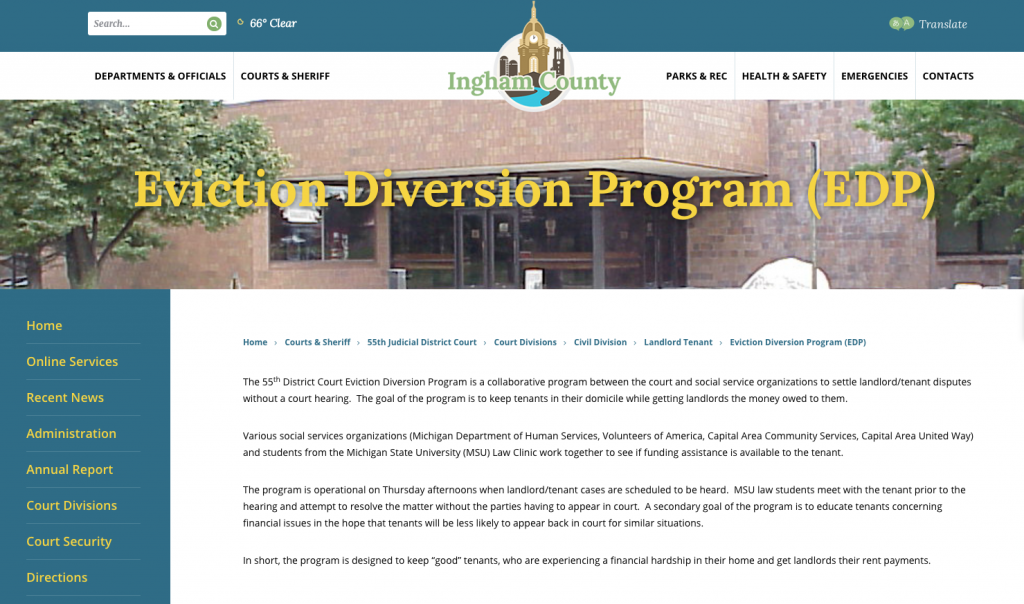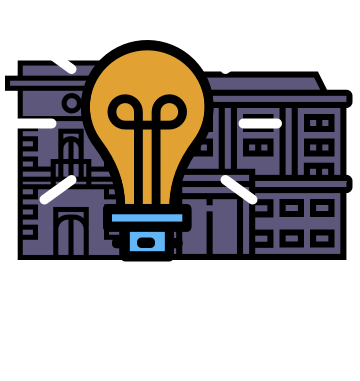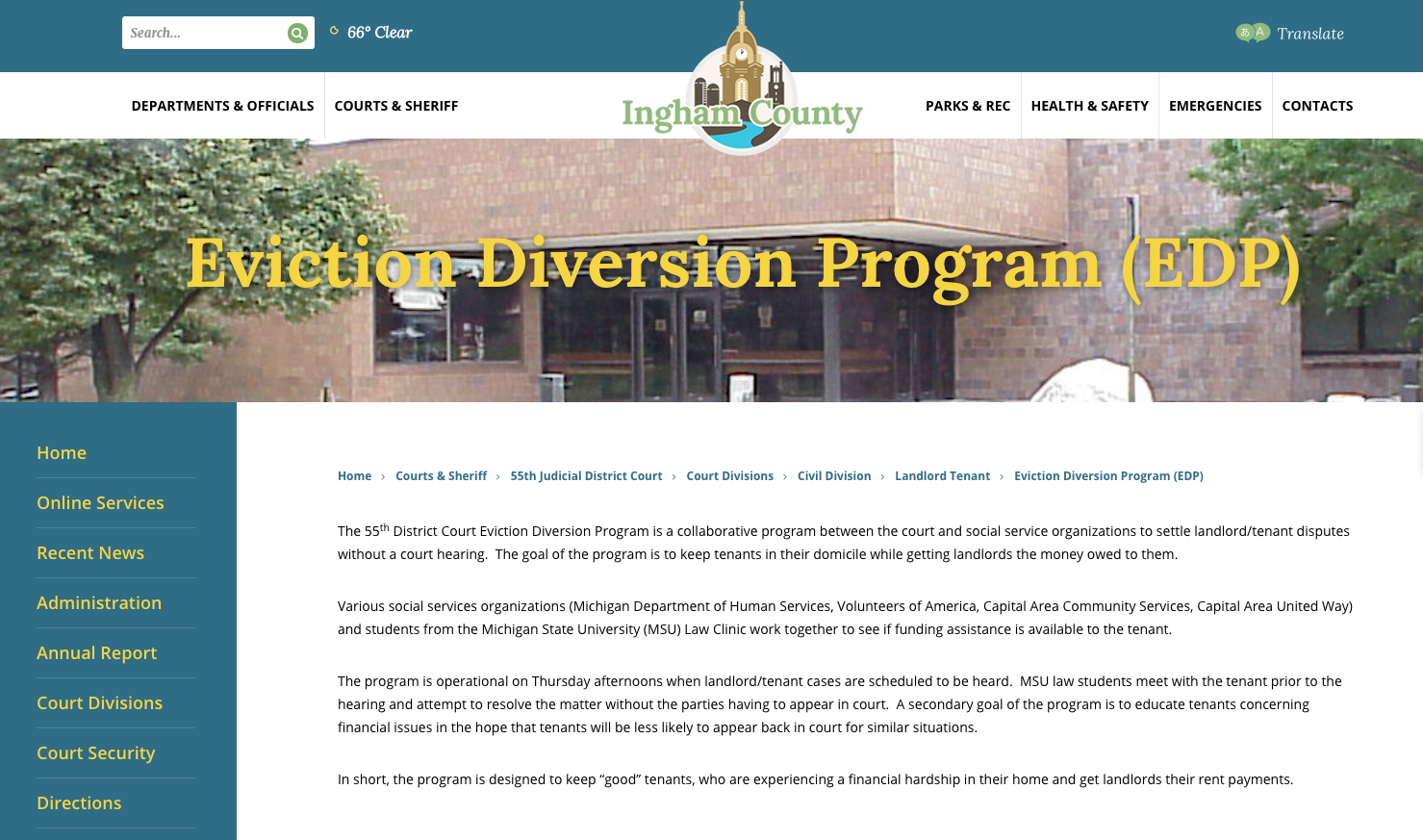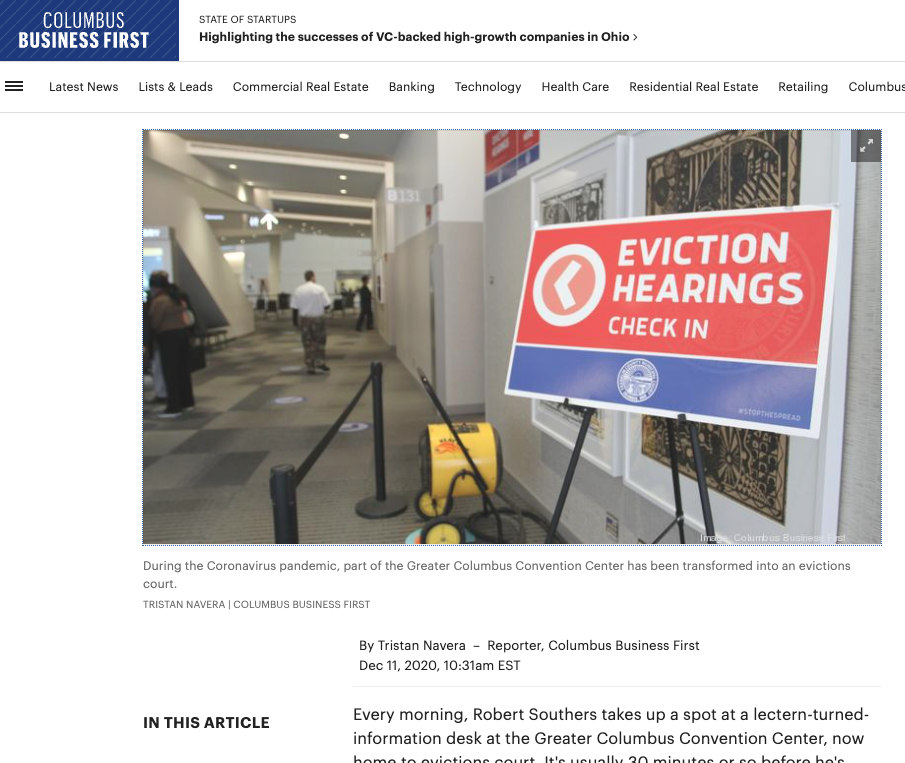Basic Information
Program Name
Short Description
Ingham County’s Eviction Diversion Program (EDP) provides tenants who have received an unlawful detainer with the opportunity to receive legal negotiation services, full legal representation, & income and eligibility screening. The landlord does not need to agree to participate in the program for the tenant to opt-into the EDP.
Location
Mason, Michigan (nearby to Lansing and Ann Arbor, Michigan)
Duration
2012 – present
Size (number of beneficiaries)
Between 300 & 400 cases per year

Stakeholders
Who designed and set up the program?
The Honorable Judge Thomas P. Boyd, Liza Rios from the Legal Services of South Central Michigan, and the Director of Health & Human Services
Who runs and manages the program?
The Honorable Judge Donald L. Allen, Professor Brian Gilmore from Michigan State University, Liza Rios from the Legal Services of South Central Michigan, and the Director of Health & Human Services.
Who funds the program?
The program is funded by an Emergency Solutions Grant and the Department of Health and Humans Services & the Legal Services of South Central Michigan’s internal budgets. Michigan State University and the Legal Services of South Central Michigan provide pro-bono lawyers.
Intended Beneficiaries: Who does the program target?
This program targets tenants and landlords, but is primarily intended for tenants.
Program Details
How does the program work? What are the typical paths of action that the beneficiary + the service-provider take?
- When tenants arrive at the courthouse for their court date, Liza from the Legal Services of South Central Michigan asks them if they want to participate in the EDP. They do not need their landlord’s consent.
- If the tenant opts into the EDP, they have access to four primary services: income & eligibility screening, legal negotiation, full legal representation, and referrals to other social service agencies.
- If a tenant doesn’t opt into participating in the EDP, the Honorable Judge Allen will ask why they didn’t want to speak with a lawyer. Some tenants will then opt into the EDP.
What assets can be shared for others to use?
Contact the program and the legal aid leaders to check on possible materials to share.
Evidence Base
What are the plans for monitoring and evaluation?
To be shared soon.
Have any evaluations been conducted so far?
To be shared soon.
See some preliminary results in a thesis on North Carolina’s eviction diversion program, and the Michigan programs’ early outcomes.
Contact and Follow-Up Info
Program Website
Documentation + Links
Politico article that references the Ingham county diversion program: https://www.politico.com/magazine/story/2018/05/24/what-works-next-durham-evictions-218416
Legal News article 2012 on launch of prgram: http://legalnews.com/ingham/1367405
Lansing City Pulse article on the program: https://lansingcitypulse.com/stories/eviction-diversion,8519
Michigan State Law article on student involvement: http://law.msu.edu/news/2012/eviction-diversion-program.html, and Michigan Bar on student training: https://www.michbar.org/file/journal/pdf/pdf4article2173.pdf
Point of Contact for more information
Elizabeth (Liza) Rios, erios@lsscm.org



